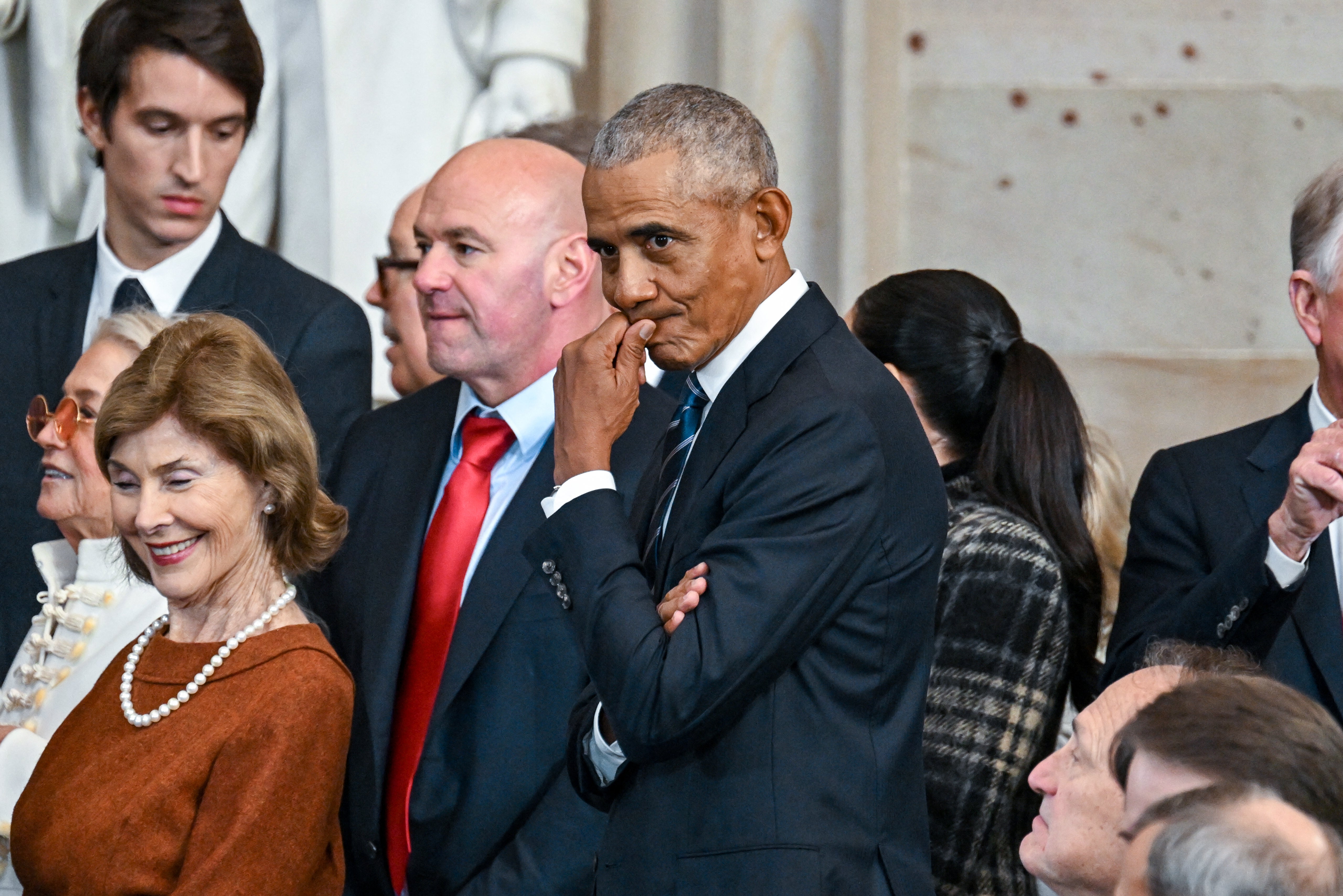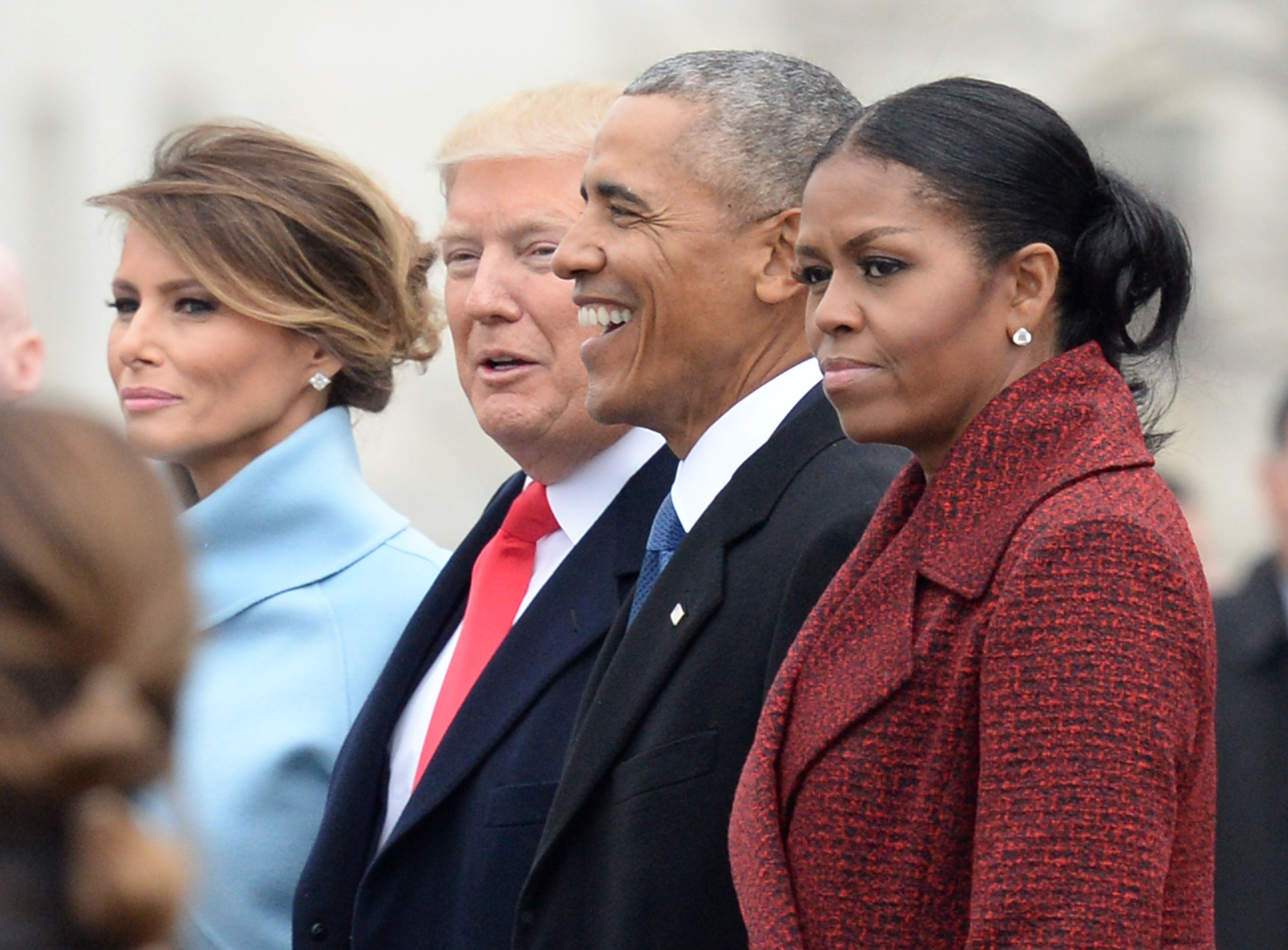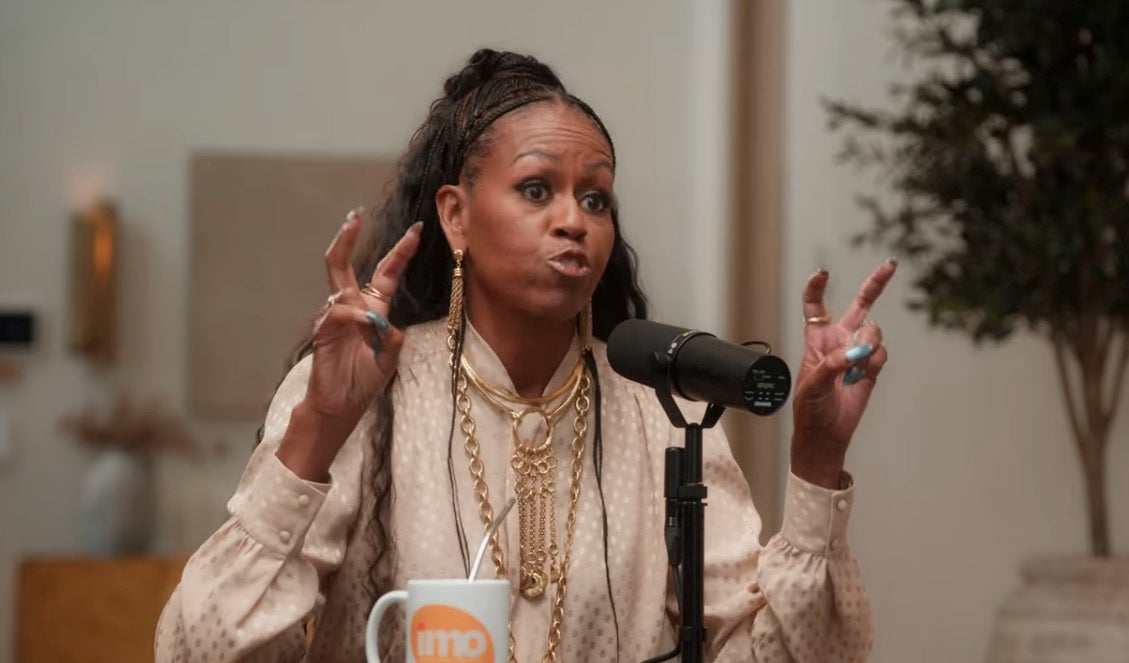Michelle Obama has just revealed why she skipped Trump’s inauguration – and it makes my heart sing
Not appearing by her husband’s side during Trump’s inauguration and Jimmy Carter’s funeral sparked multiple rumours about the state of her marriage, and vicious gossip about her husband’s alleged affair. The truth was much more powerful, says Eleanor Mills

I have long been a Michelle Obama fan: impressed by the the grace with which she handled being first lady, and her extraordinary autobiography Becoming, which revealed her to be as funny and opinionated as she is whip-smart. I was also once lucky enough to witness her mesmerising a class of girls in east London, as she told them about growing up poor, sharing a bedroom with her brother in a deprived part of Chicago.
“When I see you – I see myself,” she told them, saying that if they worked hard and seized the opportunities that education afforded them, they too could flourish and make something of themselves in the world. Her talk centred on deferred gratification, working hard for the long term, duty, and doing the right thing.
This is a woman who has grafted for everything she has in life. Which is why I cheered while listening to her latest podcast, IMO with Michelle Obama and Craig Robinson (Craig is the brother she shared that tiny bedroom with).
“No is a full sentence,” she proclaimed. “It’s so important to give ourselves permission to make decisions that protect our peace.”
Michelle, now 61, was properly explaining for the first time in public why she decided not to attend Donald Trump’s inauguration in January (nor Jimmy Carter’s funeral the week before) alongside her husband, former president Barack Obama.
For the “sin” of not showing up, she had to contend with months of rumours about the state of her marriage, and vicious, unfounded gossip about her husband’s supposed affair with Jennifer Aniston, with commentators taking her absence as proof that the couple were divorcing.
However, Michelle says the real reason was much more mundane: she didn’t go because she didn’t want to. It was that simple. And after decades of taking one for the team – putting her own career on hold to support her husband and daughters – she finally did what she wanted to do, put her own needs first, and said no.
But it wasn’t easy
“My decision to skip the inauguration – you know, what people don’t realise – or my decision to make choices at the beginning of this year that suited me – were met with such ridicule and criticism,” she said.
“People couldn’t believe that I was saying no for any other reason; they had to assume that my marriage was falling apart. While I’m here really trying to own my life and intentionally practise making the choice that was right for me.”

She added, “It took everything in my power not to do the thing that was perceived as right, but to do the things that were for me – that was a hard thing for me to do.”
When we fall into the trap of serving others instead of ourselves, as her co-host notes, women become “shock absorbers” – absorbing the needs of our partners, our children, our family and our bosses. It is both exhausting and unfair.
Michelle’s generation of women have been bred to please (don’t believe me? Just read the Girl Guides manual from the 1980s – it’s all about being good hostesses, and above all, never seeking credit or praise). We were taught that being a good woman meant prioritising everyone else over ourselves. If we worked, then we worked harder than men to prove ourselves, and being Superwoman meant not having it all, but doing it all too. The double shift – home and work – is all too real, as Michelle Obama documents in Becoming.
In midlife, that finally begins to change. Research conducted by Noon.org.uk – The Secrets of Midlife Women – found that 43 per cent of ABC1 UK women aged 45-60 agreed that “this period of my life is finally about looking after me, not everyone else – it’s finally MY turn”. Midlife, as Michelle is now discovering, is when we can finally put our own needs first.

For the former first lady, this was a conscious and intentional decision. Not just for herself, but to model putting her own needs first – finally – to her daughters Malia and Sasha Obama. “I want them to start practising now the art of saying ‘no’,” she said. “It’s a muscle that you have to build, because if you don’t constantly build it, you don’t develop it.”
This is not a one-off. Earlier this month, on Sophia Bush’s Work in Progress podcast, she talked about how women are often criticised for putting themselves first.
“So much so that this year, people... they couldn’t even fathom that I was making a choice for myself, that they had to assume that my husband and I were divorcing,” she said. “This couldn’t be a grown woman just making a set of decisions for herself, right? But that’s what society does to us. We start actually finally going, ‘What am I doing? Who am I doing this for?’” she continued. “And if it doesn’t fit into the sort of stereotype of what people think we should do, then it gets labelled as something negative and horrible.”
She added, “I feel like it’s time for me to make some big girl decisions about my life and own it fully.”
It’s a sentiment that I see echoed by the community I run for women in midlife. Many of the women talk about feeling lost, having put their own needs, dreams and wishes at the bottom of the pile for so long they’ve forgotten what they are.

One woman said she looked at her life and felt, “I haven’t chosen any of it – it’s like I’m sleepwalking through my own life.” When I ask them what they love doing, what reliably brings them joy? Many look blank – often they have spent so much of the last 25 years looking after everybody else’s needs, they’ve forgotten their own. “My kids have both gone off to university,” said one. “I was walking around the supermarket buying food, and I’m so used to getting everyone else’s favourites that I had no idea what to buy for myself…”
Recovering a sense of who we are as grown-up women, with our own agency – not as mums, partners, daughters or employees – is crucial. Life spans have doubled in the last century – the average 50-year-old now can expect to live into their late eighties, nineties or even to 100. Yet there are very few models in our culture, or maps to show what the later stages of women’s lives might look like. That’s why Michelle articulating putting herself first matters so much.
And there is a biological imperative, too. As women hit midlife, the hormonal changes of menopause mean the “pleasing”, “love hormone” oxytocin wanes in our bodies. Oestrogen goes down and testosterone increases. We stop being primed for love, nurture, and doing what everyone else wants – and start naturally leaning into our own needs instead.

Midlife isn’t a crisis – it’s a chrysalis. Everything begins to shift: by 50, over half of women have been through many of the big life events, be that divorce, bereavement, redundancy, caring for a dying or elderly parent, raising a child with anxiety, facing an empty nest, or dealing with their own health issues.
But I’ve found the women who have been through the most – who have shed the most – end up the happiest. They end up with a life they have chosen, one which matches on the outside who they feel they are on the inside. But to get to that point takes a lot of sloughing off the dead wood, a lot of pruning what no longer serves us. It takes a lot of saying NO.
Eleanor Mills is the Founder of Noon.org.uk, the UK’s premium community for women in midlife, and the author of the Times-bestselling book ‘Much More to Come: Lessons on the Mayhem and Magnificence of Midlife’, published by HarperCollins



Join our commenting forum
Join thought-provoking conversations, follow other Independent readers and see their replies
Comments